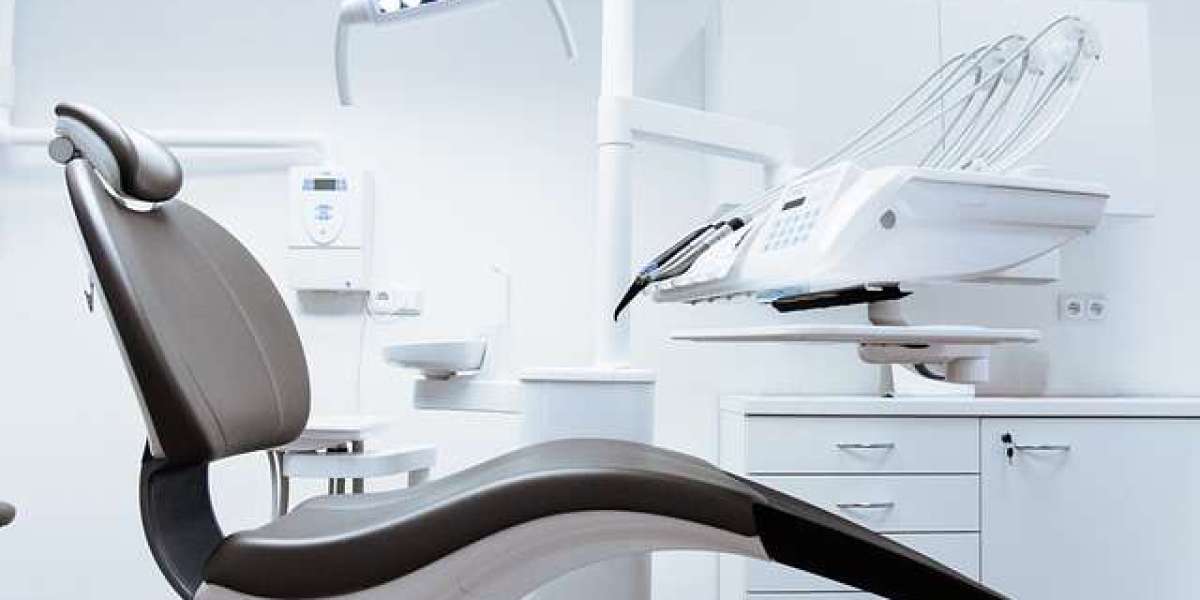Cosmetic dentistry offers solutions to enhance your smile, providing both aesthetic and psychological benefits. This article delves into the world of cosmetic dentistry, exploring its various procedures, benefits, and how it can transform not only your smile but also your confidence.
Introduction to Cosmetic Dentistry
Cosmetic dentistry focuses on improving the appearance of your teeth, gums, and overall smile. Unlike general dentistry, which addresses dental health and hygiene, cosmetic dentistry aims to create positive changes in the aesthetics of your smile. Common procedures include teeth whitening, veneers, bonding, crowns, and orthodontics. Each treatment is tailored to the individual’s unique needs and goals.
Popular Cosmetic Dentistry Procedures
Teeth Whitening
Teeth whitening is one of the most popular and straightforward cosmetic dental procedures. It involves bleaching your teeth to make them lighter and remove stains and discolouration caused by food, drinks, smoking, and aging.
In-Office Whitening: This professional whitening treatment is performed at the dental office. It uses stronger bleaching agents and often involves light or laser activation to enhance the whitening effect. Results are immediate and can significantly brighten your smile.
At-Home Whitening: Dentists provide custom-fitted trays and a professional-grade bleaching gel for at-home use. Although the process takes longer than in-office treatments, it is still highly effective and convenient.
Dental Veneers
Veneers are thin, custom-made shells designed to cover the front surface of teeth. They are typically made from porcelain or composite resin and are used to correct various dental issues, including discolouration, chips, gaps, and minor misalignments.
Porcelain Veneers: Known for their natural appearance and durability, porcelain veneers are resistant to staining and can last for many years with proper care.
Composite Veneers: These are more affordable and can be applied in a single visit. However, they may not last as long as porcelain veneers and are more prone to staining.
Dental Bonding
Dental bonding involves applying a tooth-coloured resin material to the tooth and hardening it with a special light. This procedure is used to repair decayed, chipped, or cracked teeth, improve their shape, or close gaps between teeth.
Advantages: Bonding is a quick, minimally invasive, and cost-effective solution. It can usually be completed in one visit.
Limitations: While effective, the bonding material is less durable than veneers or crowns and may require touch-ups over time.
Dental Crowns
Crowns, also known as caps, cover the entire tooth and restore its shape, size, strength, and appearance. They are used for severely damaged or decayed teeth, teeth that have undergone root canal treatment, or to hold a dental bridge in place.
Materials: Crowns can be made from various materials, including porcelain, ceramic, metal, and resin. Porcelain and ceramic crowns are popular for their natural appearance.
Orthodontics
Orthodontic treatments, such as braces and clear aligners (e.g., Invisalign), straighten crooked or misaligned teeth and correct bite issues. While traditionally associated with teenagers, these treatments are increasingly popular among adults seeking a perfect smile.
Braces: Metal braces are the most common type, but options like ceramic braces (tooth-coloured) and lingual braces (placed behind the teeth) offer more discreet alternatives.
Clear Aligners: Clear aligners are virtually invisible and can be removed for eating and cleaning, providing a convenient and aesthetically pleasing option for teeth straightening.
Benefits of Cosmetic Dentistry
Cosmetic dentistry offers numerous benefits that extend beyond mere aesthetics:
Enhanced Appearance
The primary benefit of cosmetic dentistry is an improved appearance. Whether it’s whitening discoloured teeth, straightening misaligned teeth, or repairing damage, cosmetic treatments can create a more attractive and harmonious smile.
Boosted Confidence
A beautiful smile can significantly boost your self-esteem and confidence. Feeling good about your smile can enhance your social interactions, professional opportunities, and overall quality of life.
Improved Oral Health
Many cosmetic procedures also contribute to better oral health. Straightening teeth with orthodontics, for example, makes them easier to clean and reduces the risk of decay and gum disease. Similarly, repairing damaged teeth can prevent further deterioration and preserve dental health.
Long-Lasting Results
Modern cosmetic dentistry techniques and materials are designed to provide durable and long-lasting results. With proper care and maintenance, treatments like veneers, crowns, and dental implants can last for many years.
The Psychological Impact of a Beautiful Smile
The psychological benefits of a beautiful smile are profound. Studies have shown that individuals with attractive smiles are perceived as more friendly, trustworthy, and successful. A confident smile can influence personal and professional relationships, making you more approachable and improving your self-image.
Social Benefits
A confident smile encourages more frequent and genuine social interactions. People who feel good about their smile are more likely to engage with others, make a positive first impression, and build stronger relationships.
Professional Advantages
In professional settings, a bright and confident smile can enhance your appearance and make you seem more competent and approachable. This can lead to better job opportunities, promotions, and professional networking success.
Emotional Well-Being
A beautiful smile can contribute to overall emotional well-being. When you’re happy with your appearance, it can reduce stress, anxiety, and self-consciousness. This positive self-perception can lead to a happier and more fulfilling life.
Choosing the Right Cosmetic Dentist
Selecting the right cosmetic dentist is crucial to achieving your desired results. Here are some factors to consider:
Credentials and Experience
Look for a dentist with specialised training and experience in cosmetic dentistry. Check their credentials, certifications, and memberships in professional organisations, such as the British Academy of Cosmetic Dentistry (BACD).
Portfolio of Work
Review before-and-after photos of previous patients to assess the dentist’s skill and the quality of their work. This can give you an idea of what to expect from your own treatment.
Patient Reviews and Testimonials
Read reviews and testimonials from other patients to gauge their satisfaction with the dentist’s services. Positive feedback and recommendations can be reassuring indicators of quality care.
Personal Consultation
Schedule a consultation to discuss your goals, ask questions, and evaluate the dentist’s approach and communication style. A good cosmetic dentist will listen to your concerns, provide honest advice, and create a customised treatment plan tailored to your needs.
The Cost of Cosmetic Dentistry
The cost of cosmetic dentistry varies widely depending on the procedure, materials used, and the dentist’s expertise. While cosmetic treatments can be a significant investment, many dental practices offer payment plans and financing options to make them more affordable. It’s important to consider the long-term benefits and value of a beautiful smile when evaluating the cost.
Procedure Costs
Teeth Whitening: Costs can range from £200 to £1,000, depending on whether you choose in-office or at-home treatments.
Veneers: Porcelain veneers typically cost between £500 and £1,000 per tooth, while composite veneers are less expensive, ranging from £250 to £500 per tooth.
Dental Bonding: Bonding is relatively affordable, costing between £100 and £400 per tooth.
Crowns: The cost of crowns varies based on the material, ranging from £400 to £1,200 per crown.
Orthodontics: Traditional braces can cost between £2,000 and £6,000, while clear aligners like Invisalign typically range from £3,000 to £5,000.
Financing Options
Many dental practices offer financing options to help manage the cost of cosmetic dentistry. These may include payment plans, credit options, and discounts for multiple procedures. Discussing financing options with your dentist can help make treatment more accessible.
Post-Treatment Care and Maintenance
Maintaining your new smile requires ongoing care and attention. Here are some tips for post-treatment care:
Good Oral Hygiene
Maintain a rigorous oral hygiene routine, including brushing twice a day, flossing daily, and using an antibacterial mouthwash. Regular dental check-ups and cleanings are essential to keep your teeth and gums healthy.
Avoid Staining Foods and Drinks
Limit your consumption of foods and drinks that can stain your teeth, such as coffee, tea, red wine, and tobacco. If you do indulge, rinse your mouth with water or brush your teeth shortly after.
Protect Your Teeth
Wear a mouthguard if you engage in contact sports to protect your teeth from injury. If you grind your teeth at night, consider wearing a nightguard to prevent damage to your dental work.
Follow-Up Visits
Regular follow-up visits with your cosmetic dentist are important to monitor the condition of your dental work and address any issues promptly. Your dentist can also provide touch-ups or adjustments as needed.
The Future of Cosmetic Dentistry
Cosmetic dentistry continues to evolve with advancements in technology and materials. Innovations such as digital smile design, 3D printing, and laser dentistry are making procedures more precise, efficient, and comfortable. The future of cosmetic dentistry promises even more personalised and natural-looking results.
Digital Smile Design
Digital smile design uses computer technology to create a virtual model of your ideal smile. This allows for precise planning and visualisation of the final result, ensuring a customised treatment plan that meets your aesthetic goals.
3D Printing
3D printing technology is revolutionising the creation of dental restorations, such as crowns, bridges, and veneers. It allows for faster production, greater accuracy, and more natural-looking results.







